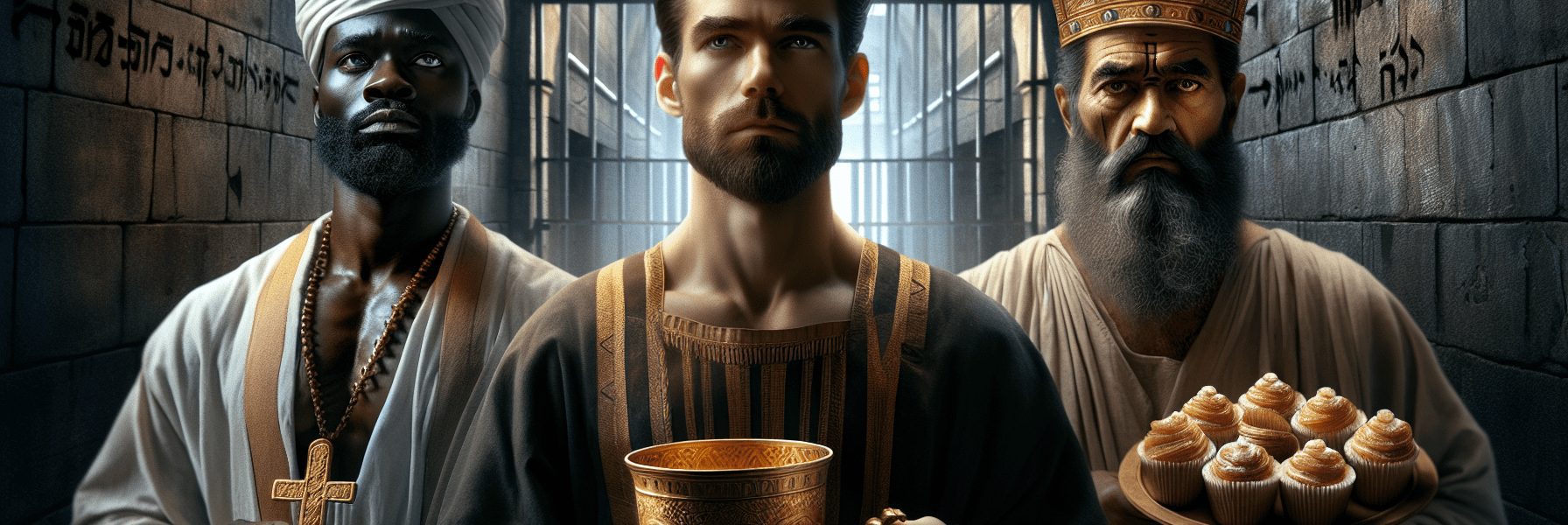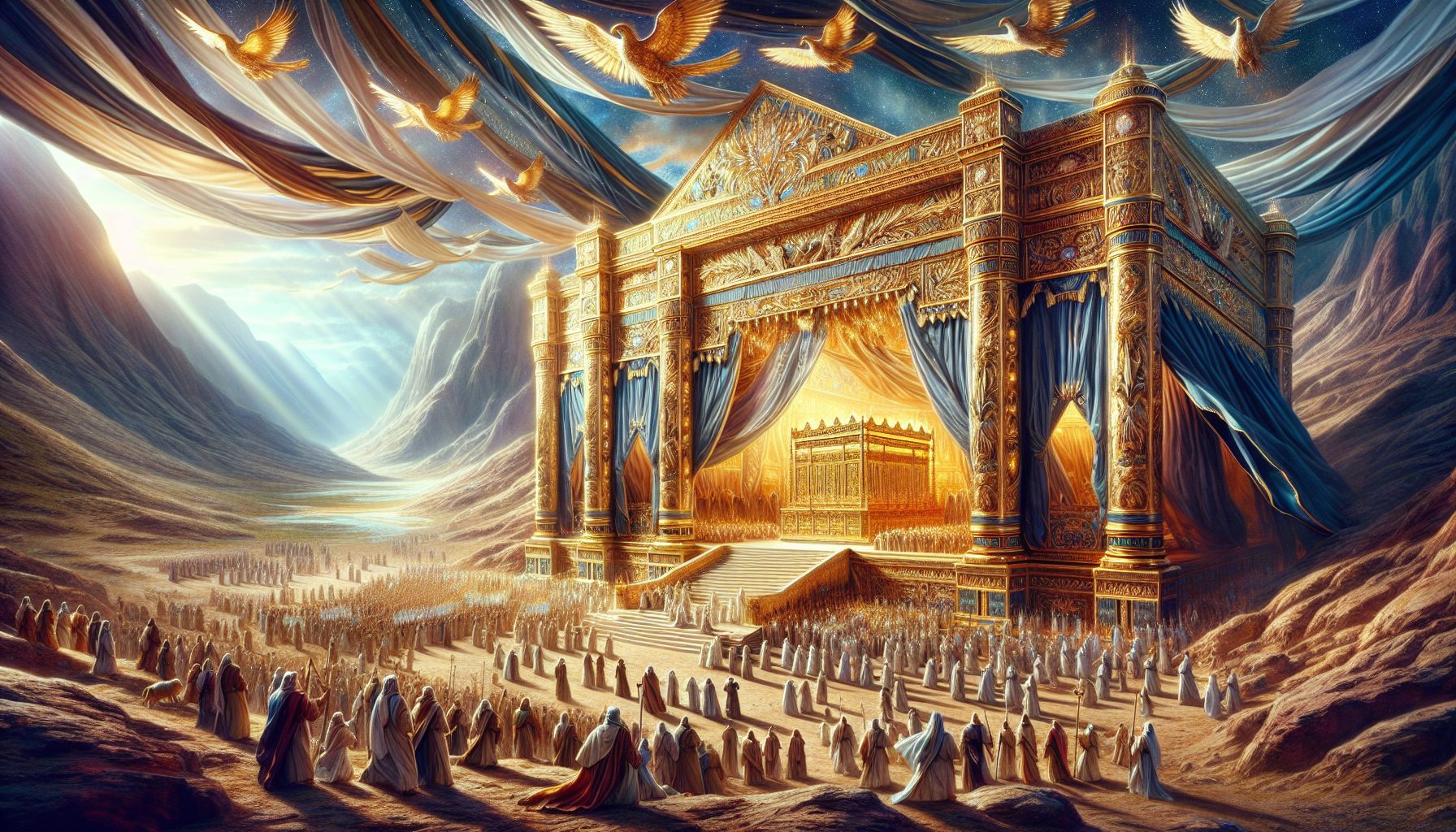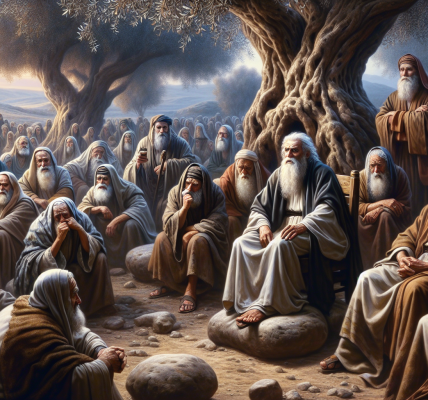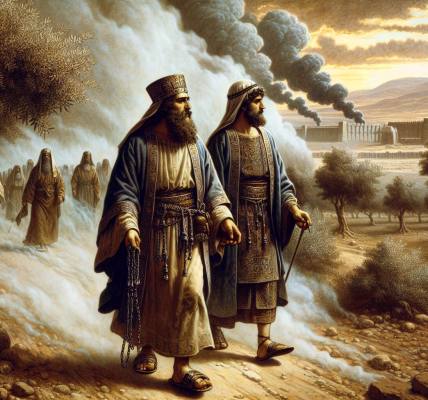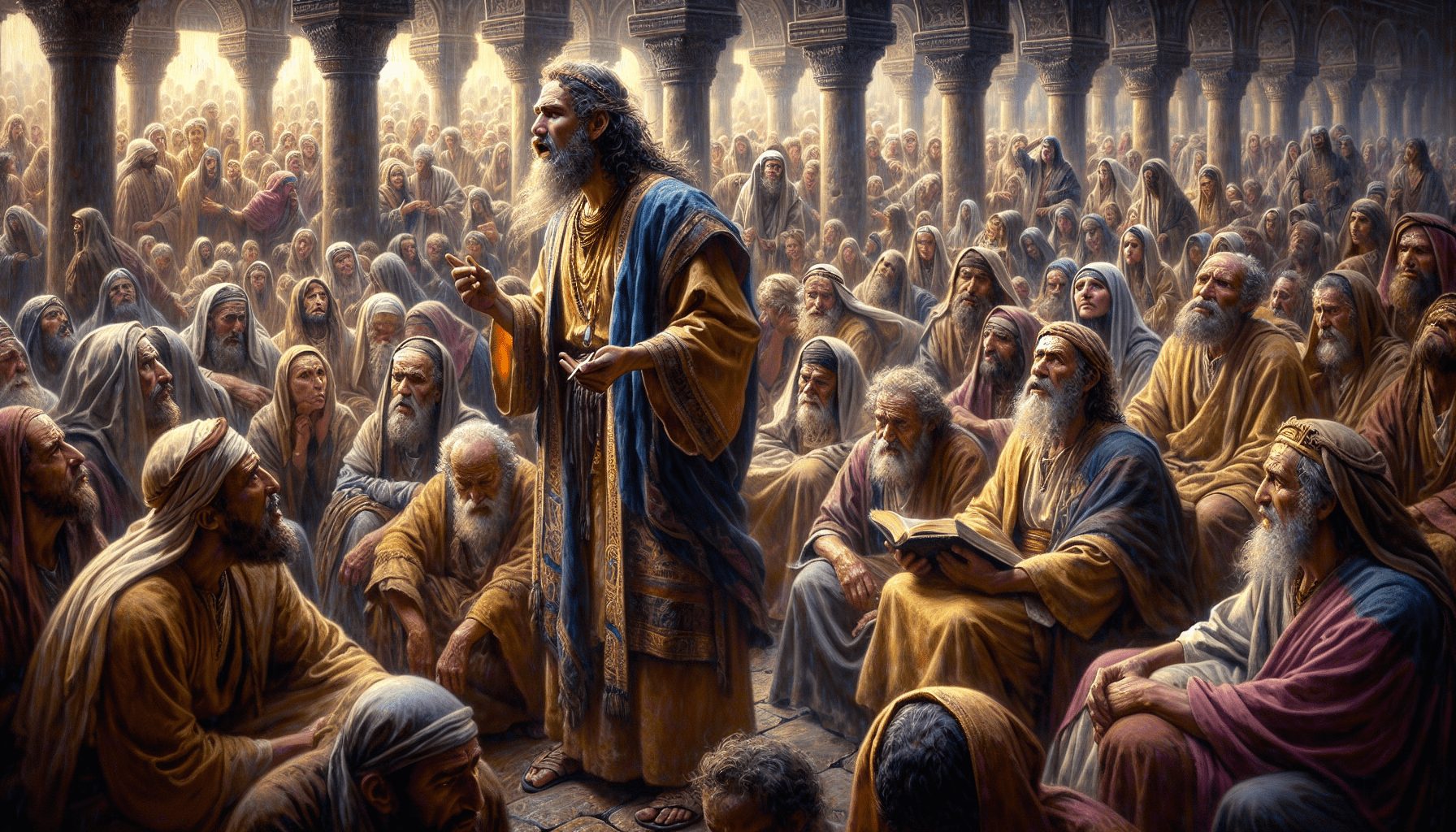**The Cupbearer and the Baker: A Tale of Dreams and Destiny**
In the dim, damp corridors of Pharaoh’s prison, where the air hung thick with the scent of sweat and despair, two men of high rank found themselves shackled not just by iron, but by fate. One was the king’s chief cupbearer, a man whose hands had once held golden goblets of the finest wine. The other was the royal baker, whose skilled fingers had crafted delicacies fit for a monarch. Yet now, both men languished in the same cell, their past glories forgotten, their futures uncertain.
Their cellmate was a Hebrew slave named Joseph, a young man with keen eyes and an air of quiet wisdom. Though unjustly imprisoned, Joseph carried himself with dignity, for he knew the Lord was with him. The prison keeper, recognizing something extraordinary in him, had placed Joseph in charge of the other prisoners.
One morning, as pale light filtered through the narrow prison bars, Joseph noticed the cupbearer and the baker sitting in sullen silence, their faces twisted with worry.
“Why do you look so troubled today?” Joseph asked, his voice steady and kind.
The cupbearer rubbed his temples. “We each had a dream last night,” he muttered, “but there is no one to interpret them.”
A flicker of understanding passed through Joseph’s eyes. He had known dreams before—dreams of sheaves bowing, of stars kneeling—dreams that had set his life on an unforeseen path.
“Do not interpretations belong to God?” Joseph said. “Tell me your dreams.”
The cupbearer leaned forward, his chains clinking softly. “In my dream, I saw a vine before me. On the vine were three branches. As soon as it budded, its blossoms shot forth, and the clusters ripened into grapes. Pharaoh’s cup was in my hand, and I took the grapes, pressed them into his cup, and placed the cup in Pharaoh’s hand.”
Joseph listened intently, sensing the weight of divine revelation. Then, with the calm assurance of one who trusted in the Lord, he spoke.
“This is the interpretation,” he said. “The three branches are three days. Within three days, Pharaoh will lift up your head—he will restore you to your office. You will place Pharaoh’s cup in his hand, just as you used to do when you were his cupbearer.”
A spark of hope lit the cupbearer’s eyes, and Joseph, moved by compassion, added, “But when all goes well with you, remember me. Show me kindness; mention me to Pharaoh, and get me out of this place. For I was stolen from the land of the Hebrews, and here I have done nothing to deserve this dungeon.”
The baker, hearing the favorable interpretation, eagerly shared his own dream. “I also had a dream,” he said. “There were three baskets of white bread on my head. In the top basket were all kinds of baked goods for Pharaoh, but the birds were eating them out of the basket on my head.”
A heavy silence followed. Joseph’s expression darkened slightly, for the interpretation was not one of joy. Yet he did not shrink from the truth.
“This is the meaning,” he said gently. “The three baskets are three days. Within three days, Pharaoh will lift your head from you—he will hang you on a tree, and the birds will pick your flesh.”
The words fell like a death sentence. The baker’s face went ashen, and he turned away, his shoulders shaking. The cupbearer, though relieved, could not bring himself to rejoice in the presence of such sorrow.
Three days later, as Joseph had foretold, Pharaoh celebrated his birthday with a grand feast. True to the visions, he restored the cupbearer to his former position, and the man once again handed the king his wine. But the baker was led away to execution, his body left exposed as food for scavengers.
Yet in the whirl of celebration and mourning, the cupbearer forgot Joseph. Days turned to weeks, weeks to months, and still Joseph remained in prison, waiting for the promise of deliverance. But though man forgets, God does not. The seeds of destiny had been sown, and in time, they would bear fruit beyond Joseph’s wildest dreams.
For the Lord was weaving a greater story—one of famine and feast, of betrayal and reconciliation, of a nation’s survival hinging on the faithfulness of one forgotten prisoner. And in the end, all would see that even in the darkest dungeon, the hand of God was at work.
